Here be dragons
'House of the Dragon returns,' plus 'Halt and Catch Fire' turns 10, plus 'Fantasmas,' 'The Acolyte,' 'Clipped,' and more
This week’s What’s Alan Watching? newsletter coming up just as soon as I’m the thing that gets you to the thing…
House of confusion
Thanks to the strikes, plus inevitable post-Peak TV contraction, it’s been an awfully slow spring, review-wise. This week, though, I’ve got four reviews, including an early one timed to an embargo, for next week’s belated second season of House of the Dragon.
I was not hugely enthusiastic about HotD early in its first season. By the end of it — after multiple time jumps that derailed every character arc, after several episodes with long sequences that were too dark to visually make sense of, and after way too many interchangeable Targaryens — I was resigned to hoping that Season Two would be better, because it felt like the creators were treating Season One as a necessary evil to get them to the story they were actually excited to tell.
Well, I’ve seen four episodes of the new season, and I’m afraid to say that HotD is not for me. As I discuss at length in my review, it remains impossible to keep track of who’s doing what and why, not only because everyone has such similar names and appearances, but because the characters are less clearly delineated, less complex, and less charismatic than all of their significant counterparts on Game of Thrones. Emma D’Arcy, Olivia Cooke, and a few of their co-stars are doing strong work, and the dragon sequences sometimes look cool. (It finally occurred to someone this season to have those scenes take place in broad daylight. Huzzah!) But it’s way too many people the show has failed to make me care about, doing way too many things for reasons the writers can’t clearly articulate.
Given the ratings for Season One, I’ll be shocked if it’s not a monster hit again. I just wish it was better.
Julio Torres is back at it again
Of the shows I reviewed this week, HBO’s Fantasmas was by far my favorite. I adored creator/star Julio Torres’ previous HBO comedy Los Espookys, which he co-created with Ana Fabrega and Fred Armisen (Fantasmas is solely his creation). And I thought his movie Problemista was terrific. If you like either or both of those — or if, like me, you feel compelled to rewatch his “Papyrus” short film on a loop every now and then — chances are extremely high that you will fall for this one. It’s a mix of black box theater and sketch comedy, with lots of star cameos (Elizabeth Banks, Steve Buscemi, plus Tilda Swinton as the voice of a water spirit who lives in Julio’s toilet) and askew ideas that seem like they could have only come from the mind of this particular creator. Not all of it works, but more than once, I texted critic friends while watching to ask, only mostly jokingly, “Am I currently watching the greatest television show ever made?”
If you want to know more, here’s my review.
What’s Alan writing?
Unfortunately, the week’s other big premieres pleased me much less. Let’s move on to The Acolyte, a new Star Wars series set about a century before the rise of the Empire. Created by Russian Doll’s Leslye Headland, the show attempts to tackle a problem that’s been apparent at least since the prequel films were made: the Jedi are in fact terrible at their jobs. But it doesn’t do it in the most interesting ways possible, and setting it before The Phantom Menace — when the Jedi are still smug idiots who don’t recognize all the things they’re doing wrong — means that nothing anyone learns is going to stick. It aspires to Andor, but through the four episodes I’ve seen, it feels closer to The Book of Boba Fett.
Meanwhile, FX (or, technically, FX on Hulu, or however we’re referring these days to shows made by John Landgraf’s team that go directly to streaming) has Clipped, a docudrama about the mess that led to racist Los Angeles Clippers owner Donald Sterling being forced to sell the team. There are some good performances, particularly by Laurence Fishburne as Clippers coach Doc Rivers, and by LeVar Burton as… LeVar Burton (in a show where every other famous character is played by an actor). But Clipped doesn’t have enough new insight or interesting presentation to justify retelling a very familiar, not particularly old news story. In general, I have a high bar for anyone making a docudrama about a well-known case, and this fails to clear that bar.
Odds and/or ends
All those other reviews, plus responsibilities for later in the month, prevented me from watching more than a couple of episodes of Queenie, a British comedy that began streaming today on Hulu as part of its Onyx Collective imprint dedicated to stories by Black creators. Hoping to revisit, and potentially review, later this month, but the two installments I’ve seen so far of the show — starring Dionne Brown as a Jamaican British woman struggling with a messy personal life and a disappointing professional one — were smart and entertaining. It’s a binge release, so if anyone gets ahead of me on the episodes, let me know if you feel it maintained that quality throughout.
As I’ve mentioned a time or three, I’ve been powering through the later seasons of ER on the treadmill the last few months. I’m currently in the midst of an absolutely dire stretch in seasons 12 and 13, where the show has just become pure misery porn. As hard as the early ER writers tended to be on poor Mark Green, it feels like that was just a warmup for the non-stop wave of calamity and tragedy the latter-day team keeps visiting on Luka, Abby, and Sam. The other day, I watched one where Sam’s trouble-making son lit their apartment building on fire, while Luka was taken hostage by an unhinged former patient (played by Forest freaking Whitaker!) intent on revenge because Luka’s misdiagnosis ruined his life. And on the rare occasions where people aren’t being threatened or tortured, we get silly, shallow love triangles like Ray Barnett and Tony Gates competing to see who can win the heart of fair Neela Rasgotra. It’s all so, so bad. But I’m still watching not only because it’s become a reliable part of my workout, and I’ve found consistency helps, but because even in the midst of all this stupidity, there is still Maura Tierney, putting on an absolute clinic on how to find something real and powerful while handed the silliest, most over-the-top material. Early in the hostage episode, for instance, Abby tries to make a human connection with Whitaker by telling him the story of how she got sober. And as long as Abby was talking, and behaving like a person, all thought of how ridiculous the Whitaker story was fell out of my head. She is capital-G Great in this role, and really in everything.
Heck, while we’re on the subject of Tierney’s facility with drama, I’m reminded of an interview I did with her during the first or second season of The Affair. We talked about how funny she was on NewsRadio, and I asked why she hadn’t done much comedy since then; she lamented that she just never got those kinds of offers, because ER made everyone think of her as a dramatic actress. Then I brought up her presence in the unaired version of the Parenthood pilot, where she played Sarah Braverman, the single mom sibling. That version of the pilot was a mess, and way too dour. Yet Tierney was just so good that I would have gladly watched a show that focused solely on Sarah and her kids. Then Tierney got diagnosed with cancer and had to drop out of the show, Lauren Graham was hired to replace her, and in the process of doing some reshoots, Jason Katims realized the show should be lighter overall, and added a crucial scene to the pilot that was just the four adult siblings goofing around together. So Tierney was by far the best part of the show, yet it improved dramatically because she left. During that interview, I told her about this weird dichotomy. She thought on it for a second, observed that Graham and Peter Krause then fell in love making the show, and quipped, “So everybody won, right?”
In conclusion, keep putting Maura Tierney in interesting things, TV business. Thank you.
Halt and catch ATX?
Finally, I spent a marvelous four days at the end of last week in beautiful Austin, Texas, for the 13th season of the ATX TV Festival. The fest’s organizers describe the event as “TV Camp for Grownups,” and that’s more or less how it felt to be there, surrounded not only by critic pals like Kathryn VanArendonk, Dan Fienberg, Mo Ryan, and Joanna Robinson, but by passionate, literate TV fans, as well as some of the smartest people in the TV business today. We kept running into Pamela Adlon virtually everywhere we turned over the weekend, for instance; she even took the above photo of me with Kathryn and Mo. Also, I ate a lot of good food, including the migas tacos from Veracruz at three different meals, and this shared feast before I flew home:
I got to be part of six wonderful panels, most of which should eventually wind up on the ATX YouTube page, and I plan to embed each one here as they appear. Because the organizers kept me so busy, I only had time to attend one panel I wasn’t moderating or otherwise participating in, but it was a great one: a reunion of the creative team and some of the cast of Halt and Catch Fire, 10 years to the day that it debuted on AMC. It was, like most ATX events, a love-fest, and Kathryn did such a good job asking questions and picking out clips that I immediately downloaded multiple episodes from AMC+ to begin a rewatch on the flight home.
I imagine I’ll have a lot more to say on that subject whenever I have time to finish that binge. If you know the show, you don’t need me to sell you on it. If you don’t, here’s a little that I can tell you:
The story begins in the early Eighties, at a computer company in Texas, where a charismatic salesman (Lee Pace), a frustrated engineer (Scoot McNairy), the engineer’s even more frustrated (and more brilliant) wife (Kerry Bishé), and an antisocial young coder (Mackenzie Davis) improbably come together for a new project that could put tiny Cardiff Electric into real competition with the big boys like IBM.
Over four seasons, there are radical shifts in the focus of the story, and in the setting. Never get too comfortable with what you think the show is, because it’ll change, quickly.
Related: don’t worry too much if the early episodes seem aimless and/or derivative. There’s an awful lot of Don Draper in Pace’s character at the beginning, and at ATX, the creators talked about the learning curve of their first TV show, and of how they didn’t really start making the show they most wanted to make until Season Two. There’s some excellent stuff in that first season, especially towards the end, but Halt on the whole is up there with The Leftovers and a handful of others that managed to go from very good in their first years to all-time great in their seconds.
Pace, McNairy, Davis, and Bishé are all doing next-level work on the show, as is Toby Huss in what’s basically the Roger Sterling role. At ATX, Bishé got choked up talking about how the experience essentially ruined her for television, because the character she got to play was so much richer and more challenging than anything she’d been offered before or since.
You will never once even think about skipping the intro:
More on both ATX and Halt in newsletters to come!
That’s it for this week! What did everybody else think?

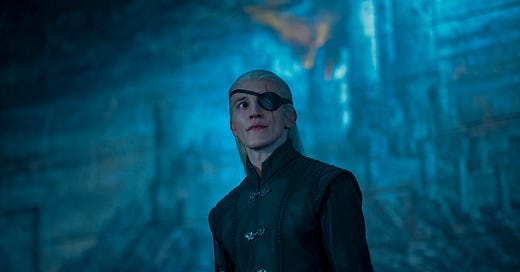



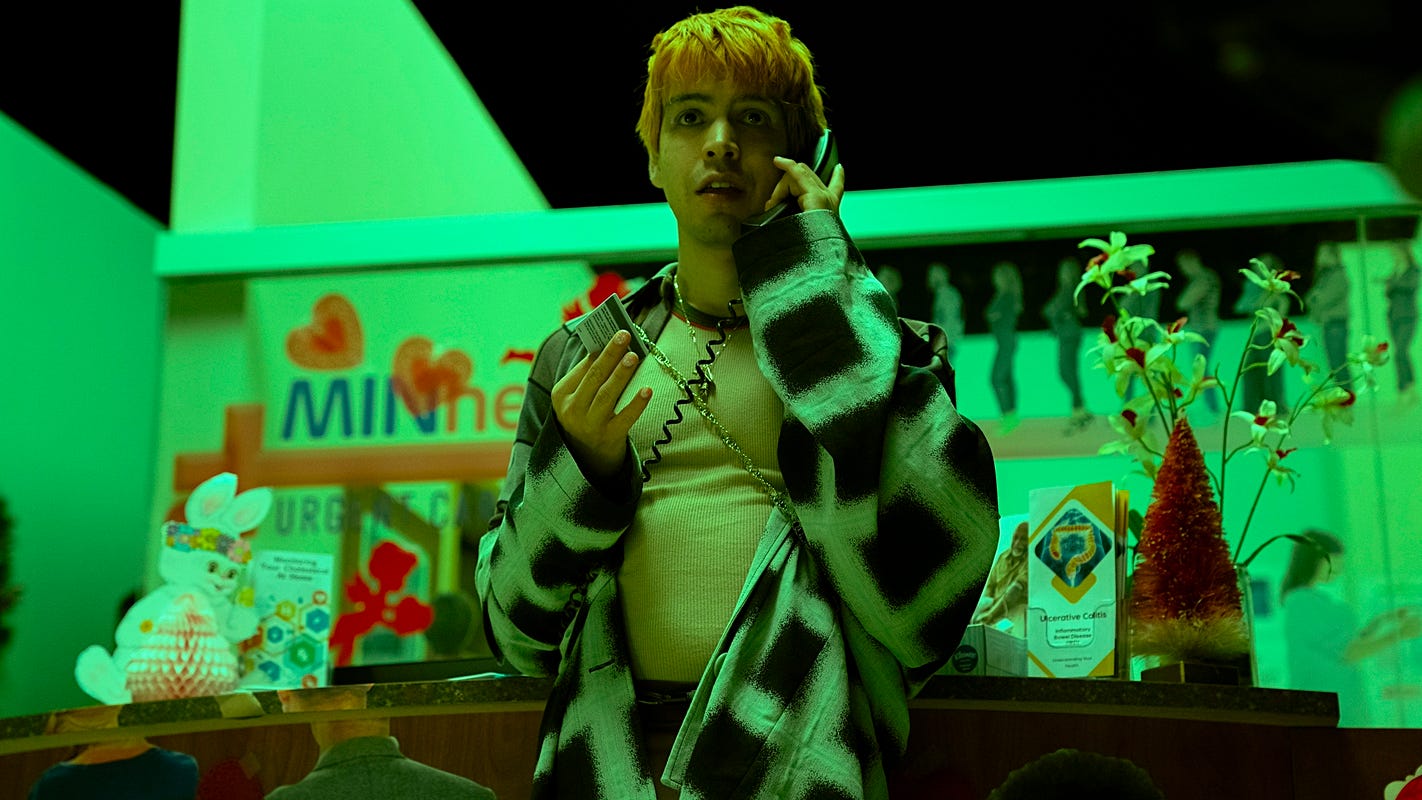
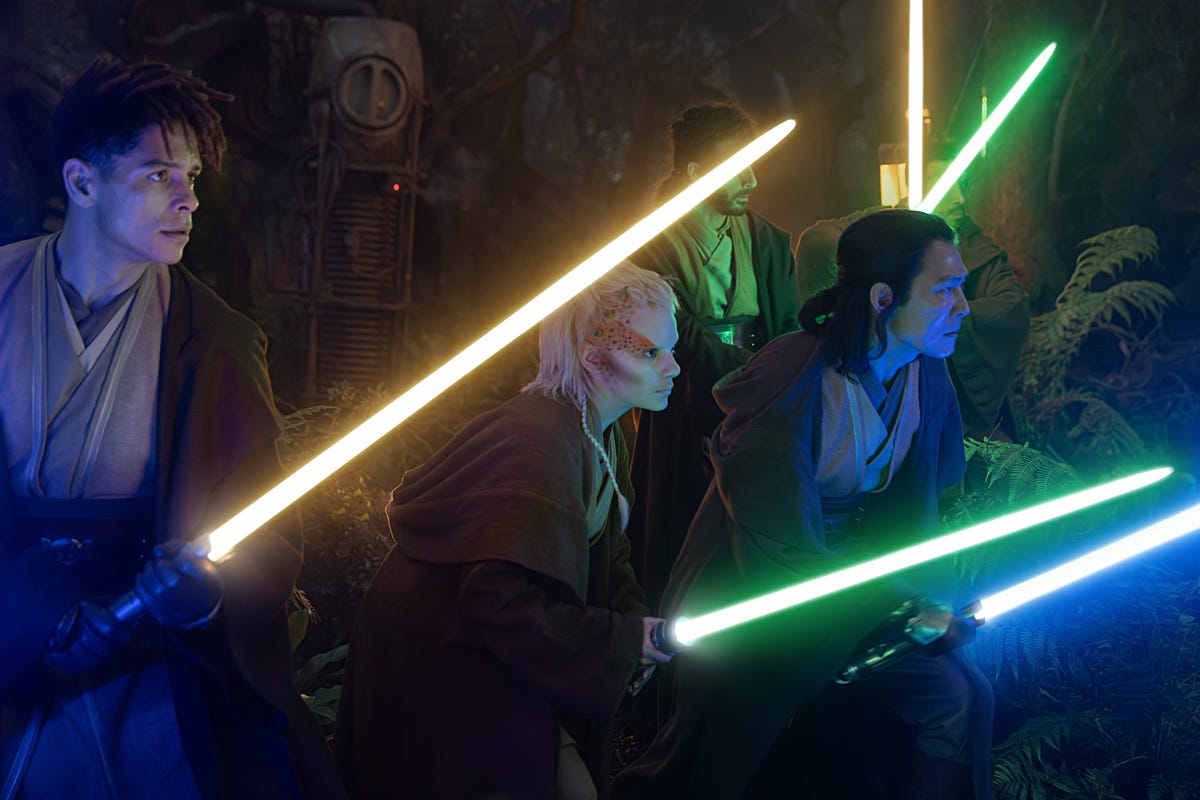
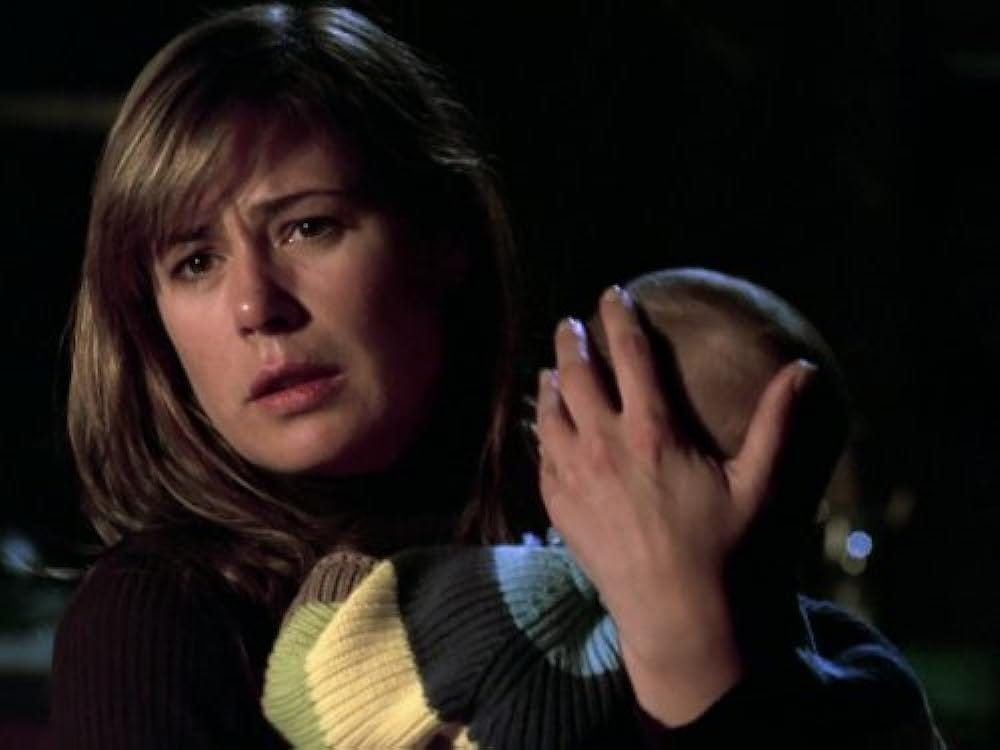
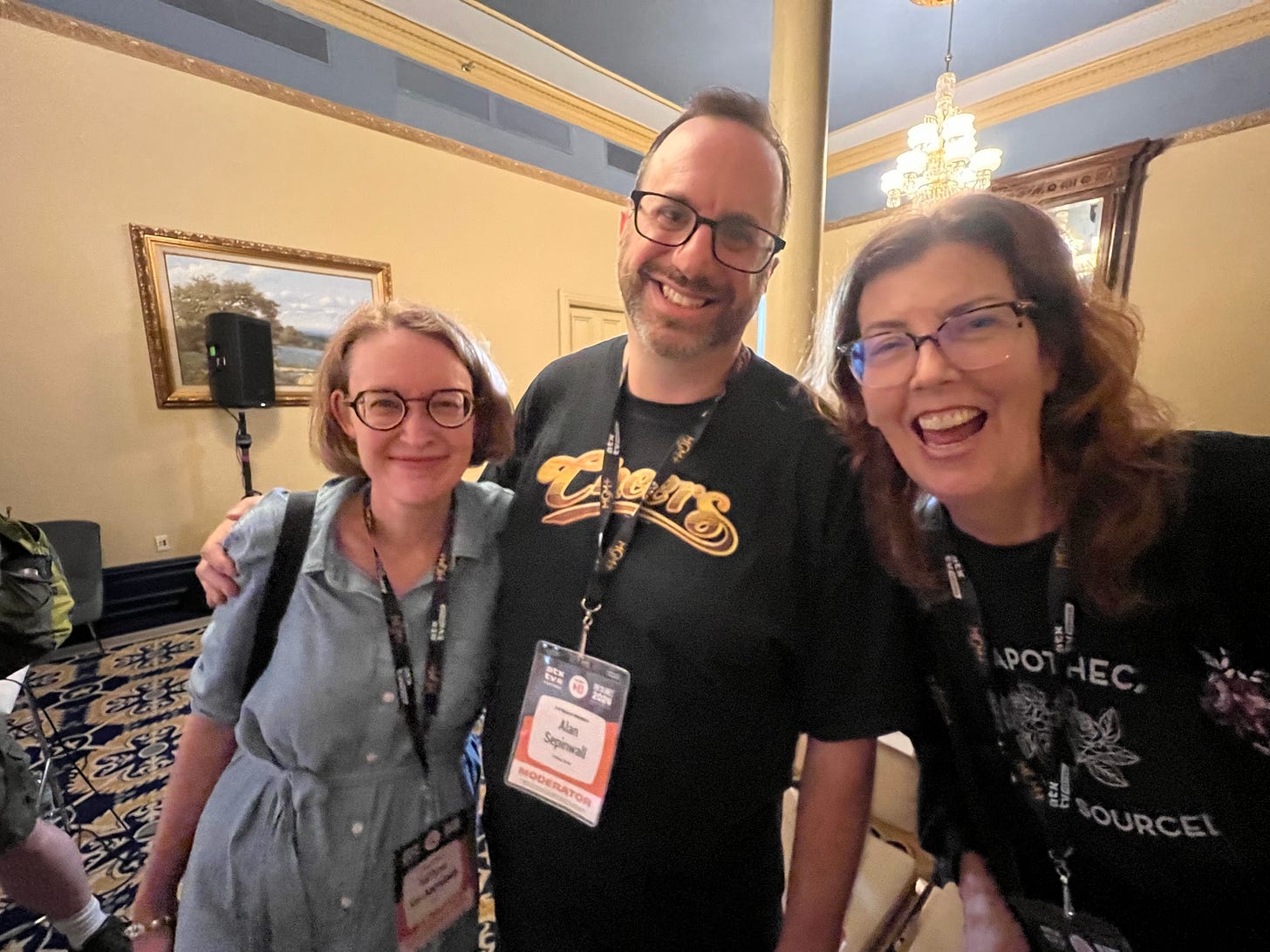

Halt and Catch Fire is always my go-to answer to the question "what's the best show people have never watched?" It truly was an exceptional show that, as you say, grew and changed significantly as it ran. While we watch the internet fall apart around us, I often think of those last few seasons and the promise and excitement tech once held; I hope more people discover it because it feels more and more relevant all the time.
"At ATX, Bishé got choked up talking about how the experience essentially ruined her for television, because the character she got to play was so much richer and more challenging than anything she’d been offered before or since."
I had some complicated feelings when I turned on "Madame Web" and there she was.